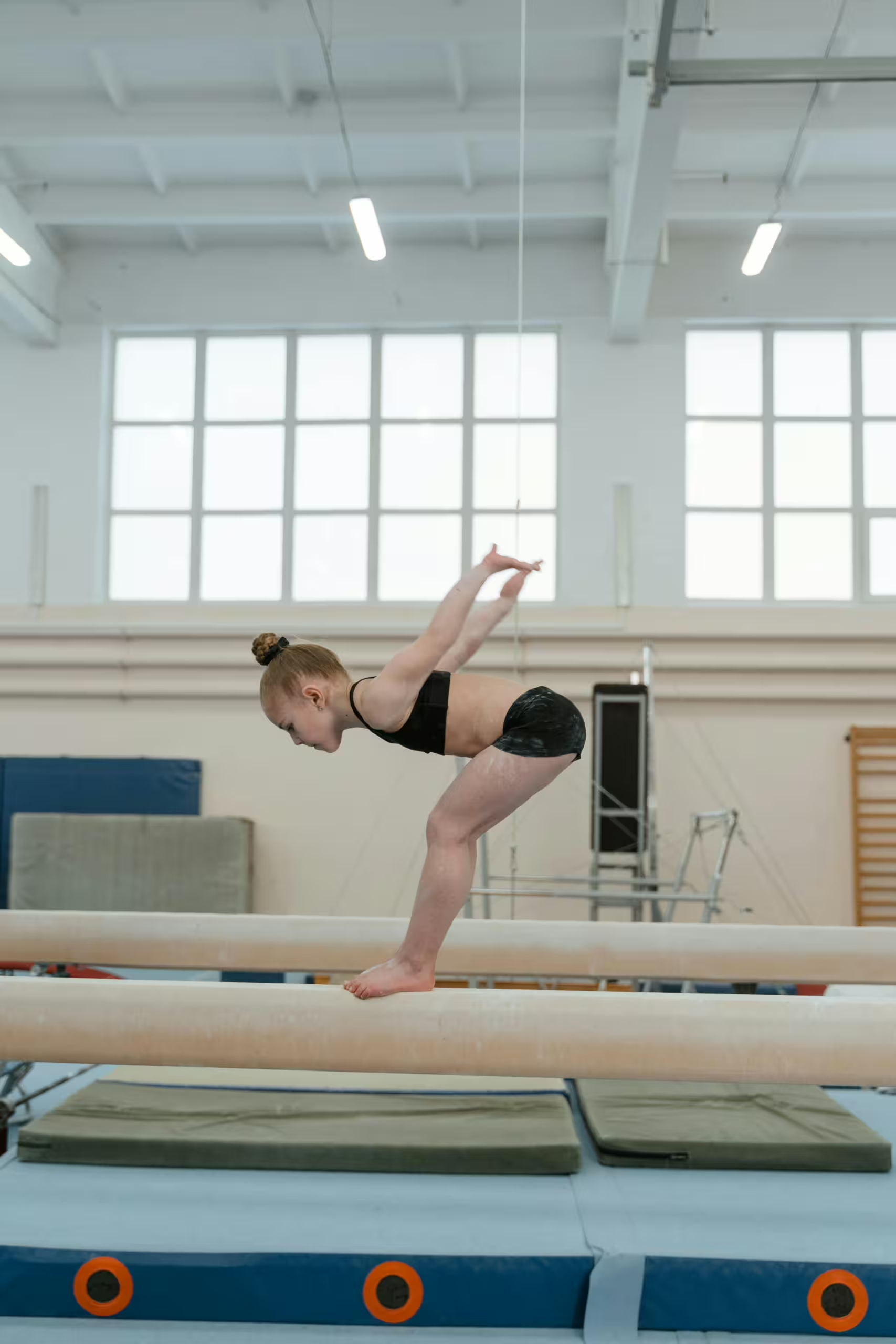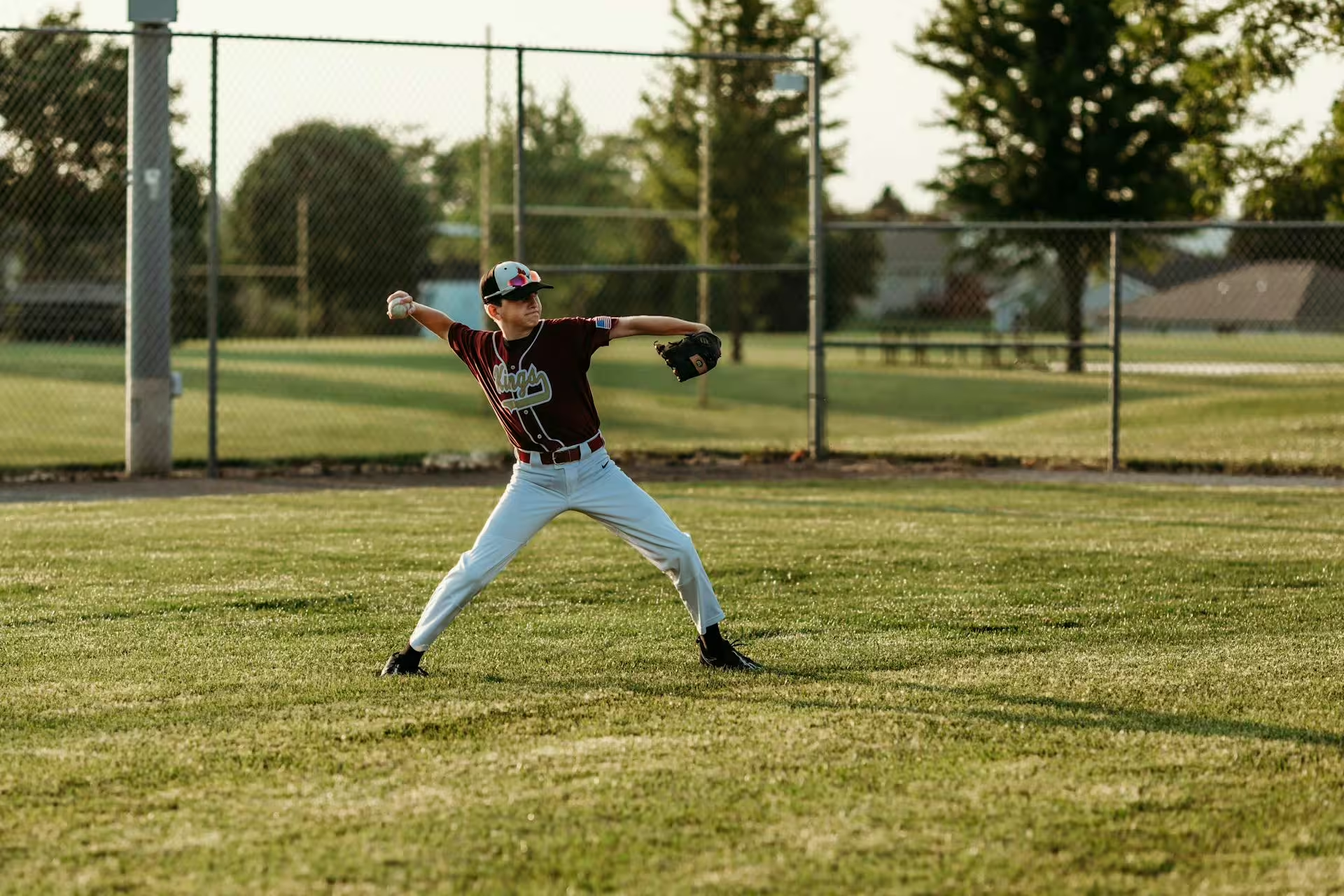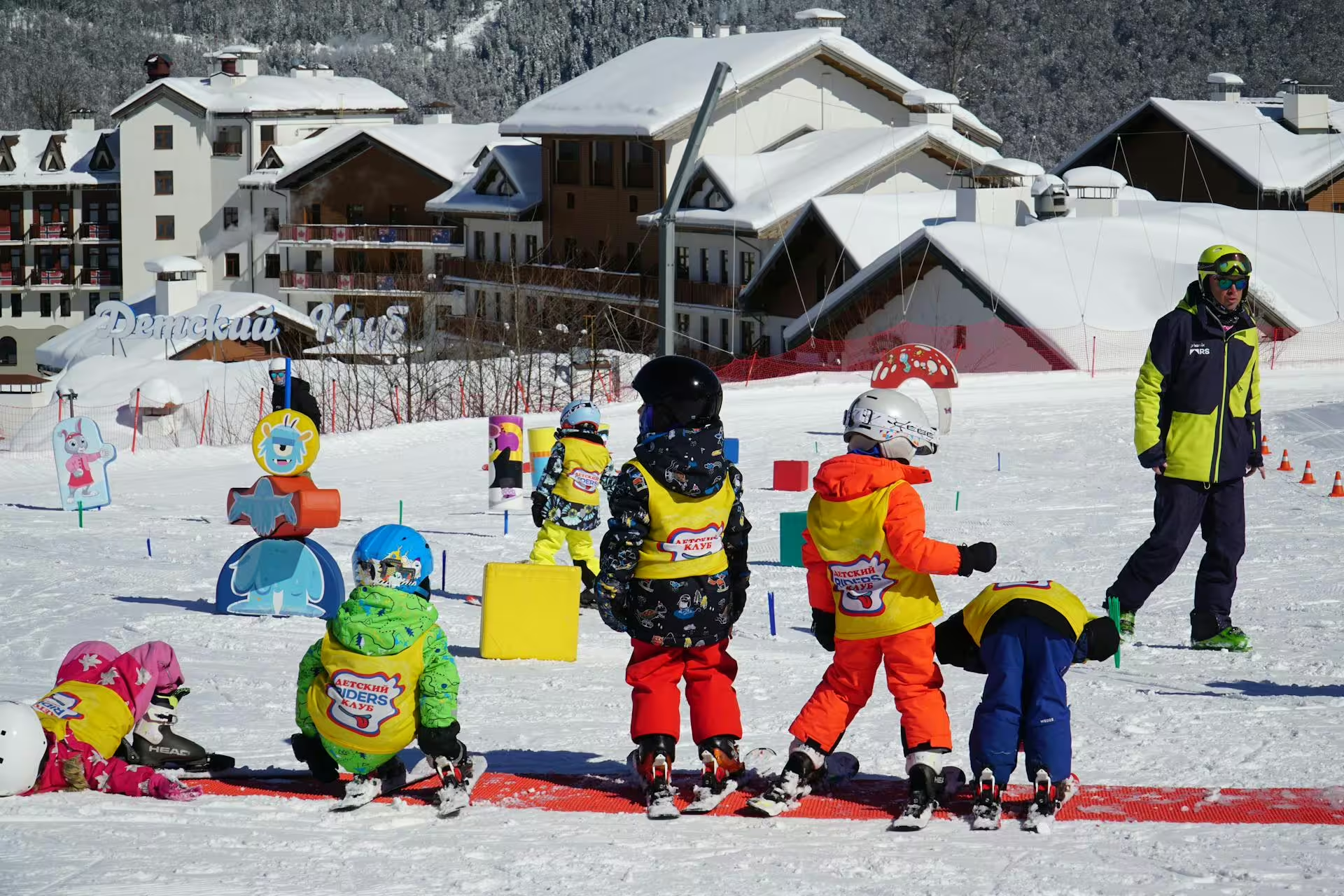We all know that kid’s sports are one of the best cures for the growing childhood obesity epidemic. We know that they help shy kids to form new friendships and that the benefits granted by practice and discipline can help children well into adulthood. Sports are fantastic way for kids to develop physical skills, improve mental toughness, and learn teamwork. Unfortunately, all of those myriad benefits can force young athletes to carry a bit of unwanted baggage along the way: anxiety and fear.
The feelings of anxiety and fear that children experience as a result of playing sports are no different than those they experience when facing other childhood challenges like academics and peer dynamics. In sports, there is an immense pressure for kids to perform well, sometimes far beyond what they might actually be capable of. This, coupled with fear of making mistakes and the pervasive worry of letting their team down, can turn what should be a fun and rewarding experience into a very stressful one.
For parents and coaches, helping kids overcome their fear of competition is crucial to their enjoyment of the sport, both in the present and in the future. Maintaining that love for sports is essential for building a healthy amount of confidence that will benefit them both on and off the field.
In this article, we will explore some of the most common reasons that kids might have for developing a fear of competition. We will also learn how this fear can affect their performance and enjoyment. To combat this, we will teach parents and coaches a number of practical strategies that they can then impart to their young athletes to help manage and overcome this fear.
Understanding Fear of Competition in Kids
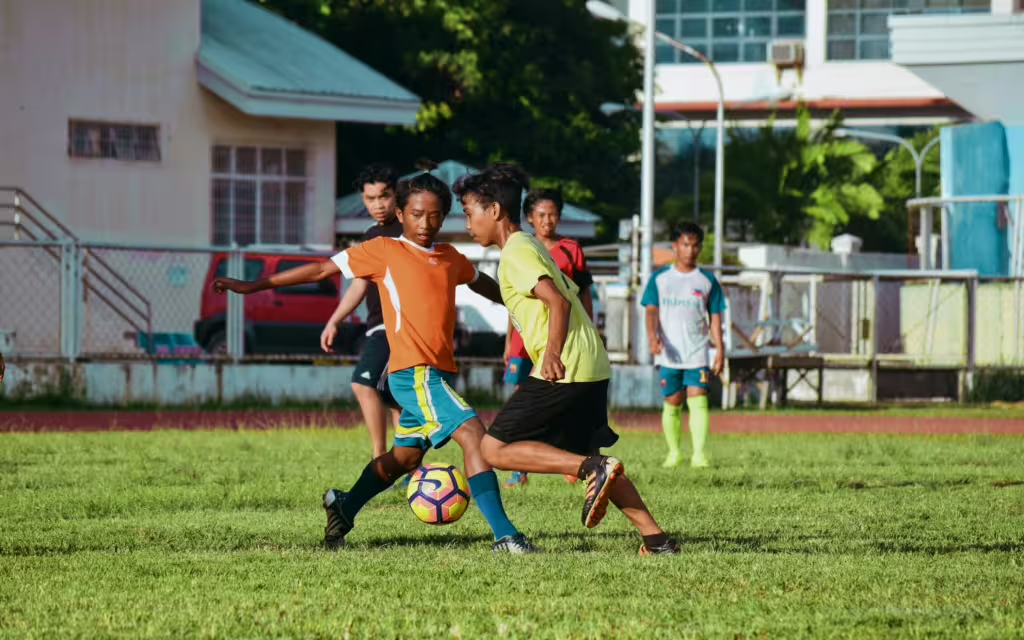
Fear of competition isn’t cut-and-dry. There isn’t just one factor that affects a child’s confidence. This fear stems from a variety of sources, and because every child is different, not all of them can be solved with the same solutions, either. For instance, while some children may thrive in competitive settings, others may struggle to keep up. To begin, we will endeavor to understand why some kids are fearful of competition.
Fear of Failure
Nobody likes to fail. It doesn’t matter if you’re a kid or a an adult, falling short of a personal goal or someone’s expectations, can be a strong motivation to succeed. Conversely, it can also be the cause of a great amount of fear. Kids can put immense pressure on themselves to win or perform at a high level, often without meaning to. Parents and coaches don’t always help either, incidentally. The child might worry about disappointing do people or even their teammates, they may even compare themselves to others and feel inadequate. Either way when a child believes that they might falling short, it can create anxiety.
Social Pressure
Social pressure is in the same vein as these aforementioned concepts. Many sports involve playing in front of an audience. That audience can be big or it can be small, be made up of family members, friends, or strangers and spectators. Regardless of who is watching many kids can find themselves afraid of being judged or embarrassed by the throng. After all, none of us like making a mistake in front of others. This concept of an audience can be rather overwhelming for younger or shyer children, who may feel that one misstep will damage their reputation or lead to ridicule.
Perfectionism
Not all kids are perfectionists. Certainly, anyone who has seen a young kid’s half-used coloring book could come to the same conclusion. Nevertheless, those children who are naturally perfectionistic may struggle with competition at times. This is because they set extremely high standards for themselves, higher even than their parents in some cases! This often leads to a cycle of stress, overthinking, and eventually burnout. Those same kids might have difficulty accepting that mistakes are part of how we learn.
Performance Anxiety
For many children and athletic adults, even, competition triggers performance anxiety. This anxiety manifests as physical symptoms, such as stomach aches, sweating, or difficulty breathing, or as emotional reactions like irritability or withdrawing from the sport altogether.
The Impact of Fear on Kids’ Sports Performance
When children are afraid of competition, their whole attitude suffers, as does their overall performance. Most of the time, parents and coaches are savvy enough to notice the impact such fear might be having on their demeanor and athletic prowess. Some of the most common effects include:
Decreased Confidence
Children who are constantly afraid of failing in competition will undoubtedly develop low self-esteem. This will often spiral into a lack of belief in their abilities, becoming a sort of self-fulfilling prophecy. They will play more tentatively, make more mistakes, and ultimately reinforce the belief that they aren’t good enough.
Overthinking and Hesitation
Getting one’s head in the game is a great skill for many young athletes to cultivate, but overthinking about every minor play, movement, or decision will lead them to ruin. Instead of relying on their training and instincts, nervous kids will hesitate or second-guess themselves, leading to missed opportunities or errors.
Loss of Enjoyment
Joy has no place when fear consumes all. The joy of playing sports can diminish rather quickly when children are too focused on making mistakes or meeting unrealistic expectations. This will often cause them to lose interest in the sport entirely, and have them consider quitting or withdrawing from competitive settings altogether.
Physical Symptoms
Stress and fear can manifest physically too. Headaches and upset stomachs are common in anxious young players, especially before competitions. These symptoms can exacerbate their stress levels and cause them to spiral down, making it even harder to perform well during the game.
How to Help Kids Overcome Fear of Competition
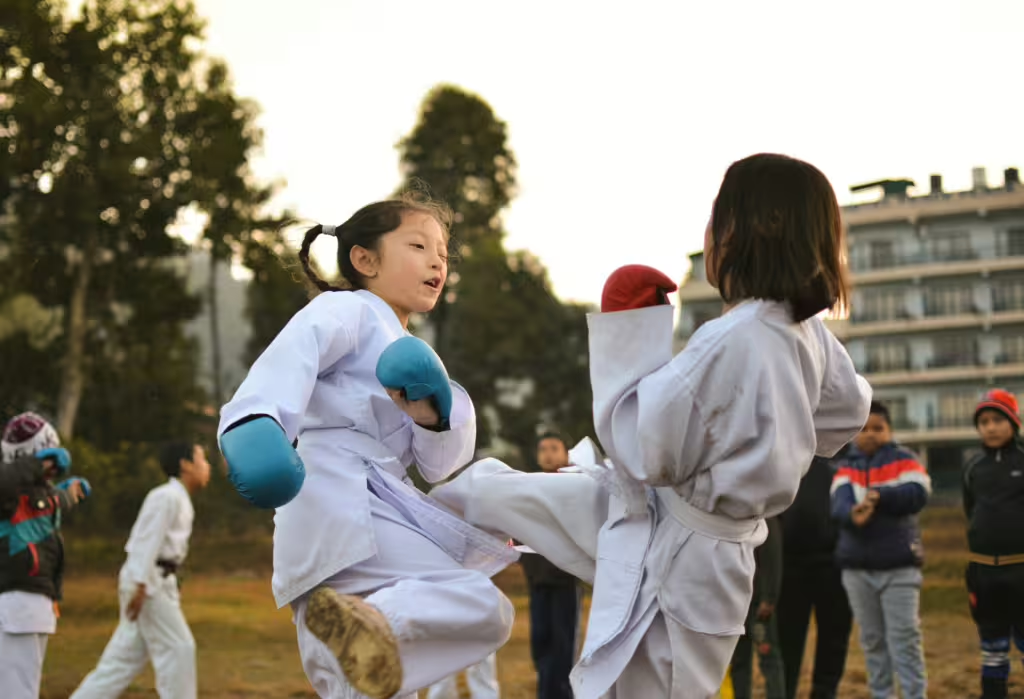
While it’s natural for children to feel nervous about competition from time to time, we don’t want them so fearful that they can’t have fun. Fortunately, there are many strategies that parents, coaches, and even the kids themselves can use to reduce that anxiety. fear The goal in the exercises below to help create an environment that encourages kids to enjoy sports and embrace the competitive experience, rather than be afraid of it.
Emphasize Fun and Effort Over Winning
One of the best ways to help kids overcome fear of competition is to shift the overall focus. Don’t let them obsess with winning and try not to do the same. Instead, let the child focus on having fun and doing their best. Let them know that the effort they put in and the fun they he had along the way, is way more important than the final standings.
Coaches and parents can encourage young athletes to set personal goals based on improvement, such as getting better at a particular skill, being a good teammate, or working hard during practice. Those small achievements will do more to helping them be successful than any final score on an away game.
Teach Them to Handle Mistakes
Mistakes will happen, but we don’t have to be scared of them. Coaches and parents should teach kids that mistakes are simply opportunities for learning. Shifting the meaning can vastly reduce their anxiety about making errors during competition. Also, it’s important to reassure them that no athlete plays perfectly all the time. Show them how even professional players make mistakes!
Practice Relaxation Techniques
Yoga and other such relaxation and breathing techniques can be incredibly helpful for young athletes who are dealing with fear or performance anxiety. Coaches can incorporate simple practices such as deep breathing exercises, visualization, or mindfulness to help calm kids’ nerves before and during competitions. This will also help kids stay calm when the pressure’s on, by giving them coping mechanisms they can enact within their own mind and body.
Prepare Them for Competition
Fortune favors the prepared and practice makes perfect…err, competent, we don’t really want to say perfect, do we? We digress, but the truth is kids who feel confident in their skills and well-practiced in their sport, are less likely to be overwhelmed by anxiety during games. This means that coaches should schedule regular practice sessions and parents should feel obliged to make them for their kid’s mental well-being.
Encourage Positive Self-Talk
The way young athletes speak to themselves before and during a game can greatly affect their mindset. We never want to encourage any sort of negative self-talk, such as “I’m going to mess up,” or “Everyone is better than me.” That type of thinking not only increases fear and anxiety, it undermines their self-confidence, which is the bane of every sports player the world over!
Instead, encourage a shift in mindset by having children say things like “I’ve practiced hard and I’m ready,” or “Mistakes are okay—I can learn from them.” Dping this can build resilience, bolster self-confidence, and reduce their focus on fear.
The Role of Parents and Coaches in Reducing Fear
As we mentioned earlier, parents and coaches play a critical role in shaping how young athletes perceive themselves, their abilities, and sports competition as a whole. Their attitudes and behaviors toward winning, losing, and mistakes can have a huge influence on the way the children in their charge experience sports.
Create a Positive and Supportive Environment
with this in mind, it’s important that kids be surrounded with positivity and encouragement. Parents and coaches should focus on positive reinforcement whenever possible. Adults should celebrate effort, teamwork, and improvement rather than just the outcome of a match or two. At the same time, practice and improvement should be praised, no matter how small or incremental.
Avoid Putting Pressure on Performance
Look, we get it, it’s natural to want your child to succeed. Some of us played sports in school or watch sports regularly, and we want our kids to be just as successful as we or our sports heroes might have been. Unfortunately, applying too much pressure to win or perform well can increase not only fear of competition but their desire to flee from it rather than work harder. Whenever possible, let your child know that you are proud of them for their effort, dedication, and the joy they bring to the game. Coaches should think in a similar way, by making practices fun, encouraging teamwork, and helping kids improve without making them feel like they have to be perfect.
Teach Perspective on Winning and Losing
Teaching young athletes that winning and losing are both part of sports—and part of life—can help them put competition in perspective. This perspective is essential in sports and in life. They need to learn how they should respond to such losses, and they do so by watching you! Thus, parents and coaches should emphasize sportsmanship, resilience, and learning from each game, instead of who won or lost.
Encouraging Resilience and Long-Term Growth
Overcoming fear of competition is a process and it’s not always easy, especially when. children are young. The point being, it’s important for kids to understand that improvement takes time. Small wins should be celebrated, as should mastering new and essential skills. Adults should teach kids to focus on the journey, rather than the destination. This will help them see participation as a means of personal growth rather than sporadic and victorious hits of dopamine.
Help Them Set Realistic Goals
To that end, parents and coaches need to. be mindful of how realistic their own goals are for their players. Goal-setting may be an effective tool for managing competition-related fears, but those goals have to be tangible and achievable.
Cultured Athlete Says…
As you have seen, overcoming the fear of competition in kids’ sports is much more achievable than you might have guessed. For parents and coaches, it’s all about creating a positive, supportive, and fun environment where young athletes can grow. The encouragement of adults can teach children to view competition as an exciting opportunity for improvement and enjoyment, rather than a source of stress, anxiety, or crippling, sickening fear. Teaching them to face their fears will help kids succeed in sports, as well as equip them with important life skills that they can carry into the future.
Discover more from CulturedAthlete
Subscribe to get the latest posts sent to your email.




